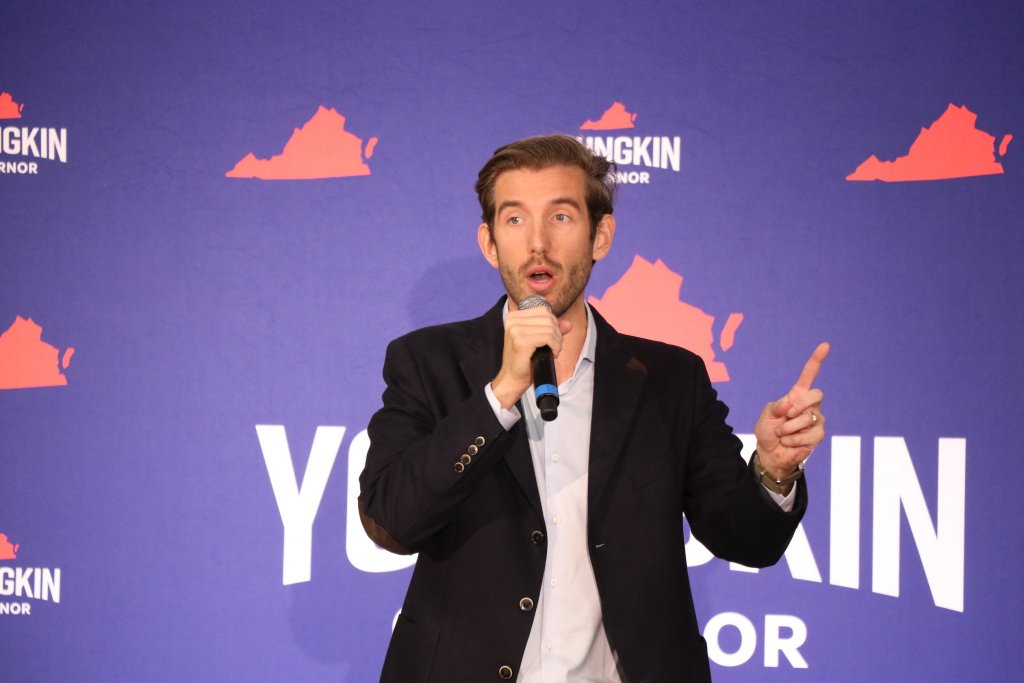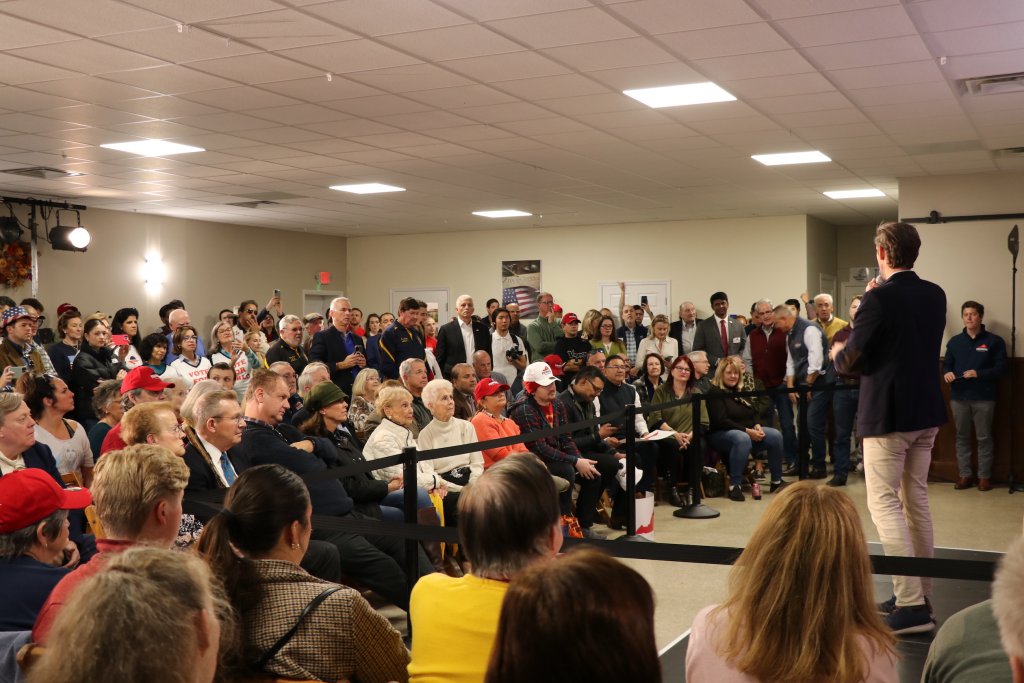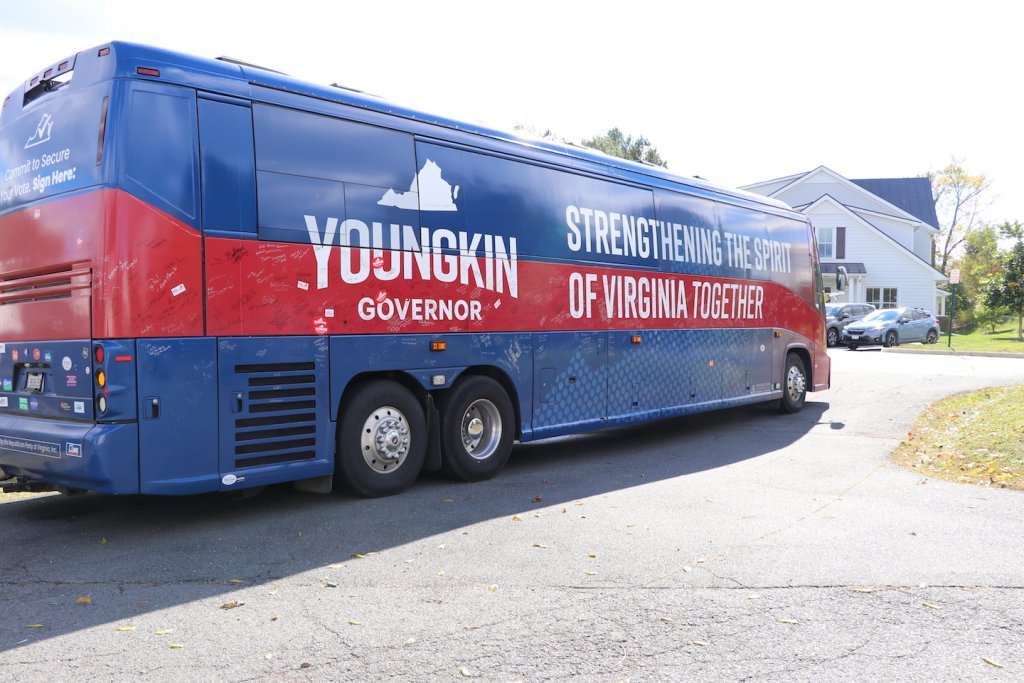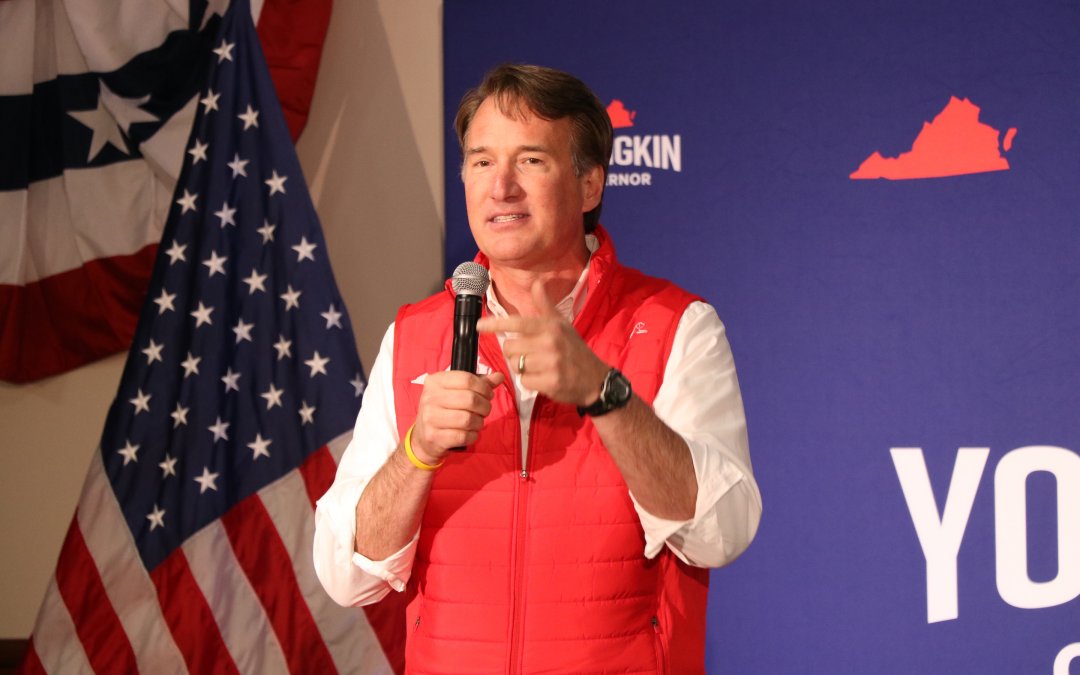THE PLAINS, VA. – Natalie Erdossy had always voted for Democrats in state and nationwide elections. Until Glenn Youngkin came along two years ago.
“Governor Youngkin is the first Republican that I ever voted for for a higher office,” the mom of four said. “And it was mostly over parental rights.”
Erdossy, who lives in Fauquier County in Northern Virginia, is one of many moderate voters who sided with Youngkin’s prominent messaging on education. He won the governorship in 2021, a period of tension as schools in Fauquier and Loudoun counties navigated closures and mask mandates during the COVID-19 pandemic.
School board meetings became a battleground for culture wars. Public comment sections turned nasty as parents clashed with school board members over COVID-19 policies, critical race theory and book banning. A June 22 meeting ended abruptly with a parent arrest, which garnered national attention.
Youngkin capitalized on suburban parents’ growing discontentment with public schools. He campaigned on the rights of parents, who he insisted should have the supreme voice in their children’s education.
This messaging brought Erdossy across the aisle. Two years later, she intends to vote Republican again, this time for District 31 Senate candidate Juan Pablo Segura. At an October rally with Segura and Youngkin, Erdossy donned a t-shirt reading “Moms for Liberty,” a conservative parental rights grassroots movement.
“I will always prioritize the needs of my kids,” Erdossy said. “That’s always my number one concern as far as this election.”
Segura has a tough-on-crime stance and is a strong parental rights advocate. He is running a competitive race against Democrat Russet Perry.

State Senate Juan Pablo Segura (R-S.D. 31) speaks to a crowd at an October rally one month ahead of Election Day. (Rachel Schlueter/MNS)
District 31, which encompasses a majority of Loudoun County and a portion of Fauquier County, is a key seat that Republicans need for state legislature control. Republicans currently run the House of Delegates and governorship, but Democrats hold a 22-17 edge in the Senate.
The Democratic majority has blocked many of Youngkin’s conservative policies, including a 15-week abortion ban. But with every legislature seat up for grabs due to statewide redistricting, Youngkin may be able to turn Virginia red and pass more conservative statutes.
Miles Coleman, an analyst with the University of Virginia Center for Politics, said that based on Youngkin’s support for Segura, the governor knows just how important a win in District 31 is. According to the Virginia Public Access Project, Segura has raised $5 million. Youngkin’s super PAC, Segura’s second biggest donor, has given him $257,000. Perry has raised $6 million.
“We’re seeing congressional-level spending,” Coleman said. “To me, this emphasizes how high the stakes are.”
In 2020, President Joe Biden won the district by 13.3%. In 2021, Youngkin won by 0.6%, according to Sabato’s Crystal Ball at the University of Virginia Center for Politics. Coleman said this narrow margin means victory will be an uphill climb for Segura.
“(Segura) is going to have to replicate Youngkin’s numbers in an environment that’s probably not going to be as Republican leaning as it was two years ago,” Coleman said.

Senate District 31 went for President Joe Biden by 13.3% in 2020. But in the most recent statewide election, Republicans flipped the script. (Rachel Schlueter/MNS)
With school closures and mask mandates “in the rearview mirror,” Coleman said Youngkin’s education rhetoric may not be as effective as it was in 2021. At an October rally, Youngkin utilized a different approach.
The governor spoke on masking just once and never mentioned critical race theory or bathroom policy for transgender students. Instead, Youngkin touted teacher raises, school building renovations and the creation of lab and charter schools. He also delivered his trademark parental rights message.
“No more can we allow parents to have to go sit in the other room while decisions are made for their children,” Youngkin said at the rally. “No more are we going to see academic standards systematically lowered.”
Notably, Youngkin did not mention his policies concerning culture war issues, such as his sexually explicit content prevention law that districts have exploited to ban books, or controversial model policies that require students to use the bathroom of their birth sex.
These policies, along with national media coverage of explosive school board meetings, have led to the parental rights movement gaining a notorious reputation. Cheryl Onderchain, the chair of the Moms for Liberty Loudoun County chapter, said she has seen the negative effects of this on moderate voters.
While door knocking for school board members, Onderchain recalls, “I had one woman say, ‘Oh god, you’re not the book banners are you?’”
The mom of two Loudoun County students, Onderchain called the label “a hoax” meant to “fearmonger.” Onderchain said she told the woman that Moms for Liberty was monitoring sexually explicit content in books.
This popular book banning defense, however, has come under fire as a way to ban books with LGBTQ+ and minority characters. According to the American Library Association, seven of the 13 most challenged books in 2022 featured LGBTQ+ content.
Onderchain said calls for traditional schooling and high academic standards, like Youngkin made at the rally, could help attract moderate voters.
Erdossy said the educational issue she is most concerned about is literacy, adding that two of her children are dyslexic.
Onderchain said she is certain education will mobilize moderate voters, especially parents. She also said the issue has energized voters without kids.
“They’re concerned about the future citizens of this country,” Onderchain said.

Youngkin’s Spirit of America PAC is the second biggest campaign donor to Segura’s campaign. (Rachel Schlueter/MNS)
Coleman, however, expressed caution over weighing education with so much value. There is a myth, he said, that white suburban moms in Loudoun County were the reason Youngkin flipped Virginia red.
“What really helped Youngkin was voters in the rural areas,” Coleman said. “He turned out Republicans like nothing else.”
After Youngkin’s win in 2021, Coleman examined 13 Virginia counties, mainly in the state’s southwest region, with a white evangelical majority. Coleman said voter turnout increased 33% in those counties, as opposed to a voter increase of 26% statewide.
Coleman said it is more likely Democrats will maintain their majority, rather than Republicans trying to claim it. Of the 40 Senate seats, Youngkin carried 20 of them in his 2021 victory. Even as Youngkin campaigns alongside Senate candidates like Segura, Coleman warned it may not be enough.
“Youngkin can do basically everything right as a Republican, but his numbers are sort of a ceiling,” Coleman said. “Democrats just have to pick off one of the marginal Youngkin seats.”
Although this defeat may be a tough pill for Youngkin to swallow, it may benefit the governor in the long-term, Coleman said. A split state legislature would mean Youngkin couldn’t pursue a right-wing agenda, which would likely tank his favorability with northern counties like Loudoun and Fauquier.
In October, there was speculation that Youngkin would make a last-minute entry into the 2024 presidential race. Though it’s likely too late for Youngkin to join, Coleman said a split legislature could help Youngkin’s image on the national political scene.
“The most popular governors are often the governors who do nothing,” Coleman said.
Nonetheless, Erdossy said she hopes a red wave comes this Election Day and that Virginia is a “bellwether” for a similar outcome in 2024.
Coleman said this election will likely offer some kind of insight for next year’s presidential election, but he said it will certainly demonstrate whether Youngkin’s strategy needs a greater overhaul.
“We’ll see after this election if Youngkin’s playbook needs any updating.”


